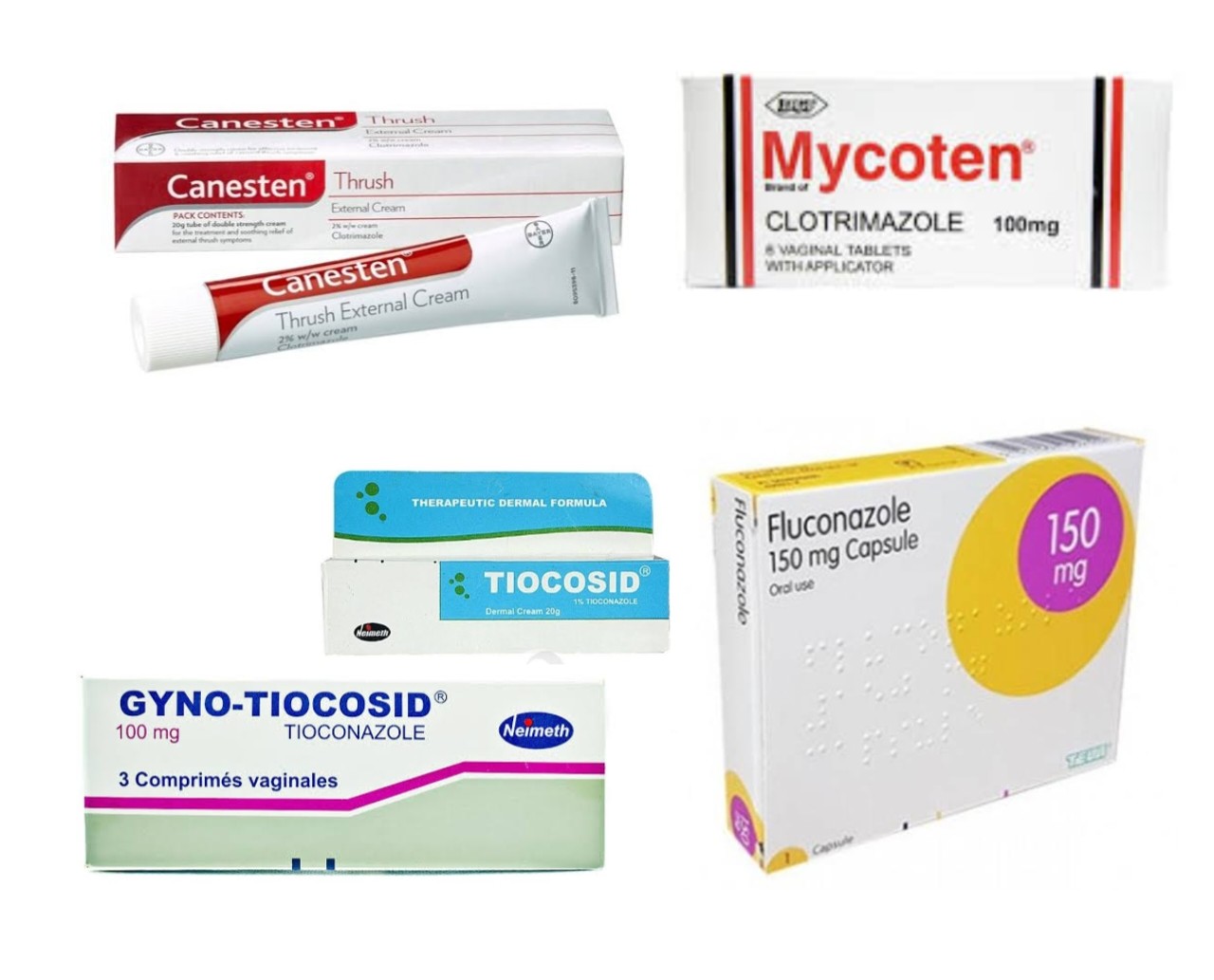The term “toilet infection” is a colloquial word used to describe vaginal problems. There are problems ranging from sexually transmitted infections to urinary tract infections that people collectively refer to wrongly as “Toilet infections”.
Vaginal infections can have plenty of different causes, and they’re fairly common. In fact, the American College of Obstetricians and Gynecologists says up to a third of people with vaginas will develop vaginitis at some point in life.
These infections can happen at any time, but they’re most common during your reproductive years or your late teens to early 40s. About 75% of women will experience a vaginal yeast infection sometime in their life, and up to 45% of those women will have repeat yeast infections. That’s a daunting prospect if you’ve had one before —it’s not something you want to do again. Thankfully, you can make lifestyle and diet changes to prevent a yeast infection.
You can develop a vaginal infection without having penetrative sex, or any other type of sex. In other words, vaginitis is not the same as a sexually transmitted infection (STI), though certain types of sexual activity can cause vaginitis.
Causes of a Toilet Infection
Many things can cause a “toilet infection”. Some of the common causes of toilet infection include:
- Untreated diabetes. High amounts of sugar in your body can feed yeast in your vagina. Once you get your diabetes under control, the bacteria in your body should follow suit.
- Misuse of Antibiotics. Because antibiotics kill both good and bad bacteria, you’re more likely to get a yeast infection while taking them. If you get a recurrent toilet infection, let your doctor know if they’re considering prescribing an antibiotic. They may be able to help.
- Unprotected Sex. You can pass an infection to your partner during sex, so communicate clearly with your partner before engaging in intercourse.
- Hormonal changes. Hormones during pregnancy, menopause or breastfeeding can change the bacterial balance in your vagina.
- Immune Disorders. Some immune system disorders may let yeast grow uncontrolled in your body.
- Douching. Products like vaginal sprays or douches can change the balance of bacteria in your vagina.
Being aware of the causes of a toilet infection can often help to head them off before symptoms begin.
Signs And Symptoms Of Toilet Infection
Vaginal infections don’t always cause noticeable symptoms.
If you do develop symptoms, you’ll likely notice some of these common ones:
- a change in the amount of vaginal discharge
- a change in the color of vaginal discharge
- inflamed, flushed, or swollen skin around your vagina and vulva
- pain during penetrative vaginal sex
- pain or burning during urination
- vaginal bleeding or spotting
- vaginal itching and burning
- vaginal soreness and discomfort
You might have just one or a few of the symptoms listed above. If your symptoms don’t go away within a few days, or if they get worse, it’s important to connect with a healthcare professional to get a diagnosis and treatment.
Drugs For Toilet Infection In Nigeria
There are several drugs used in the management of vaginal problems in Nigeria they include:
Fluconazole
Fluconazole is used to treat serious fungal or yeast infections including vaginal candidiasis, oropharyngeal candidiasis (thrush, oral thrush), esophageal candidiasis (candida esophagitis), other candida infections (including urinary tract infections, peritonitis [inflammation of the lining of the stomach], and infections that may occur in different parts of the body), or fungal (cryptococcal) meningitis. This medicine works by killing the fungus or yeast or preventing its growth.
Dosage for vaginal candidiasis
- Adult dosage (ages 18–64 years): One 150-mg dose.
- Child dosage (ages 0–17 years): Use of this drug hasn’t been approved in children younger than 18 years.
Clotrimazole Suppositories Or Vaginal Tablets And Cream
Vaginal clotrimazole is used to treat vaginal yeast infections in adults and children 12 years of age and older. Clotrimazole is in a class of antifungal medications called imidazoles. It works by stopping the growth of fungi that cause infection.
Adult dose: one vaginal tablet single dose, at bedtime, preferably lying down
Place the tablet on the applicator. Insert the applicator high into the vagina. Push the plunger then remove the applicator.
Vaginal clotrimazole also comes as a cream to be inserted into the vagina. It also may be applied to the skin around the outside of the vagina. The cream is inserted into the vagina once a day at bedtime for 3 or 7 days in a row, depending on the product instructions. The cream is used twice a day for up to 7 days around the outside of the vagina. Follow the directions on the package or your prescription label carefully, and ask your doctor or pharmacist to explain any part you do not understand. Use clotrimazole exactly as directed. Do not use more or less of it or use it more often than directed on the package or prescribed by your doctor.
Miconazole
Vaginal miconazole is used to treat vaginal yeast infections in adults and children 12 years of age and older. Miconazole is in a class of antifungal medications called imidazoles. It works by stopping the growth of fungi that cause infection. Most people will feel relief within the first 24 hours after using miconazole (Monistat). You should definitely feel some improvement in their condition within the first 3 days after starting miconazole (Monistat) and completely better within 7 days.
To apply miconazole cream, insert one applicator filled with cream into the vagina as far as it will comfortably go. Slowly press the plunger of the applicator in to apply the cream. Make sure to insert the correct cream for use inside the vagina, not the skin cream for use on the outer genital area (vulva).
Tioconazole
Tioconazole belongs to the family of medicines called antifungals, which are used to treat infections caused by a fungus or yeast. They work by killing the fungus or yeast or preventing its growth.
Tioconazole ointment reduces vaginal burning, itching, and discharge that may occur with this condition. You should notice some improvement in your symptoms after the 1-day treatment. It may take up to 7 days after using the 1-day dose before your symptoms go away completely. Call your doctor if your symptoms do not improve after 3 days, or if you still have symptoms for longer than 7 days.
There are several combination kits like Cotozal TZ and other single-dose treatments for toilet infection.
How Can I Prevent Toilet Infections?
Everyone’s body is different, so the things that lead to toilet infections for some people don’t always cause problems for others. But in general, anything that changes the chemical balance in your vagina can lead to vaginitis.
Allergic reactions or sensitivity to different products, materials, or activities can also cause vaginitis.
You often can prevent these by making a few lifestyle changes. These changes can include:
- Don’t use scented tampons and pads, vaginal deodorants, and perfumed “feminine hygiene” products. (If you’re worried about the way your vagina smells, your doctor can let you know if it’s normal or not).
- Stop using any perfumed bath products (like soap or bubble bath), laundry products, and scented or colored toilet paper if they irritate your skin.
- Don’t douche — douching washes away the good, healthy stuff in your vagina and throws off your vagina’s natural balance. And if you already have an infection, douching can make it worse. Vaginas are self-cleaning, so you don’t need to clean the inside of your vagina. Washing your vulva with mild, unscented soap or just plain water is the healthiest way to clean your genitals. Toilet infections have nothing to do with how clean you are, so bathing or douching won’t cure vaginitis.
- Toilet infections develop more quickly when your vulva is moist, so keep your genital area as dry as possible. Don’t sit around in a wet bathing suit or damp clothes, and don’t wear pants that are uncomfortably tight.
- Rinse your vulva with mild soap and water when you shower and dry after. Wear cotton or cotton-crotch underwear — they breathe better and can help keep your vulva dry. And change your underwear daily.
- Change your tampons and pads every 4-8 hrs. Wash menstrual cups and sex toys carefully according to their instructions.
- If germs from your anus get into your vagina, they can cause an infection. Wipe carefully after pooping to avoid spreading germs to your vulva. If a finger, sex toy, or penis goes into your butt, wash it carefully before it touches your vagina (or use a new condom over it).
- Certain types of lubricants and spermicide may cause irritation for some people — stop using them or try a different brand if you have a reaction. If you’re allergic to latex, you can use polyurethane, polyisoprene, or nitrile condoms (they’re made from soft plastics and are latex-free).
- Get to know your genitals. Look at your vulva with a mirror, and pay attention to your regular smells and vaginal discharge. It’s normal for discharge to change a little bit throughout your menstrual cycle. But knowing your body well is the best way to tell if something’s wrong, so you can get treatment as soon as possible if you need it.






